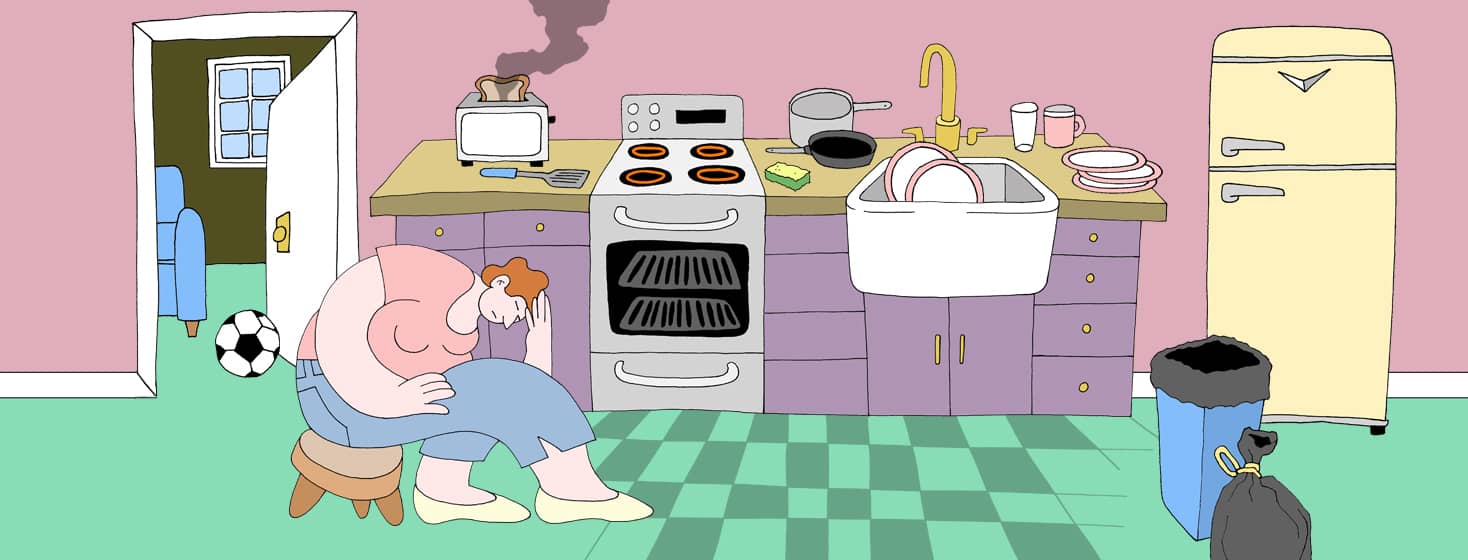My Experience Managing a Chronic Condition While Caregiving
I was a caregiver to both of my parents, who had Alzheimer's and other medical conditions. My dad was diagnosed with Alzheimer's disease right around the time I was diagnosed with Rheumatoid Arthritis (RA) in 2004.
I was in my 20s and had recently graduated from grad school as an Occupational Therapist. My mom was diagnosed with Alzheimer's several years later. After my dad passed in 2017, she moved in with me. I became her sole caregiver.
High-intensity caregiving situations
Any of you who are caretakers know that being a caretaker in any capacity is stressful. As a caretaker for a loved one with Alzheimer's, you encounter a daily and progressive struggle. You deal with:
- Cognitive changes
- Behavior changes
- Increased safety issues
- Sleep disturbances
- Eating changes
It also got to the point with my mom that she needed help managing her bathing, eating, dressing, cooking, driving, finances, and even making health decisions. Much physical assistance was required of me in my caregiver role, along with a lot of love, patience, care, understanding, and compassion.
As the disease progresses, caregiving for a loved one with Alzheimer's becomes a "high-intensity caregiving situation."1
When the caregiver has difficulty taking care of their health
The National Alliance for Caregiving and AARP Caregiving in the U.S. 2020 report revealed that 1 out of 4 caregivers reported having difficulty caring for their health.1
Those caregivers who reported such difficulty taking care of their health were from care situations that were high-intensity caregiving situations. These caregiving situations required high hours of caregiving, and much physical strain, including:1
- Providing assistance with daily living tasks
- Emotional stress
- Feelings of loneliness
- Managing multiple conditions
- Living with the person they were caregiving for
When the caregiver has a chronic medical condition
My chronic medical condition is known as Rheumatoid Arthritis. It is a progressive disease of the immune system that affects all of my joints, cartilage, soft tissue, and organs. It is a chronic condition. Because of it, I have personally experienced:
- Chronic pain
- Severe fatigue
- Severe joint inflammation
- Muscle weakness
- Difficulty gripping
- Difficulty walking at times
I commonly experience a "flare-up" of my symptoms and have difficulty performing tasks like dressing, bathing, cooking, and driving. There currently is no cure, and it is considered to be a condition that, for me, will last a lifetime. Stress has proven to be a negative factor and contributes to an increase in my symptoms.
My personal experiences caregiving with a chronic condition
I was working full-time as a pediatric Occupational Therapist. My career was highly demanding in every way. As Mom's Alzheimer's disease progressed, her safety awareness skills declined. There were notable differences in her memory, and she required supervision, monitoring, and assistance in every area of her life. As her caregiver, I had to:
- Go to countless medical appointments
- Deal with insurance paperwork
- Meet with elder lawyers
- Seek financial assistance and support for her
In addition to caregiving to her, I also managed my own severe chronic health issues. This entailed frequent blood work, doctor appointments, proper eating, stress management, and vital sleep.
Giving mom the care and support she deserved
It got to the point that I was stressed out all the time – financially, emotionally, and physically strained. I was not eating or sleeping properly. It was weird because I knew I was doing everything I could, and it still never felt like I was doing what I needed to.
I felt my health slipping away. It was not an easy decision, but I fought to get my mom into a facility that could provide the care she required.
Take care of yourself
To all of you caregivers out there, please remember to care for yourselves. You cannot advocate for your loved one if you are too sick to do it. I know it is hard, but please be gentle with yourselves.
Shortly after, I got my mom into a place where she flourished. My disease wreaked havoc on my body. I was so sick that I could no longer work, which ultimately led me to a period of time where I was without a home of my own.
I did my best to get better physically, mentally, and emotionally. I was able to spend the remaining time healing with my mom and finally being able to be her daughter. That time I got to be her daughter was priceless to me.

Join the conversation